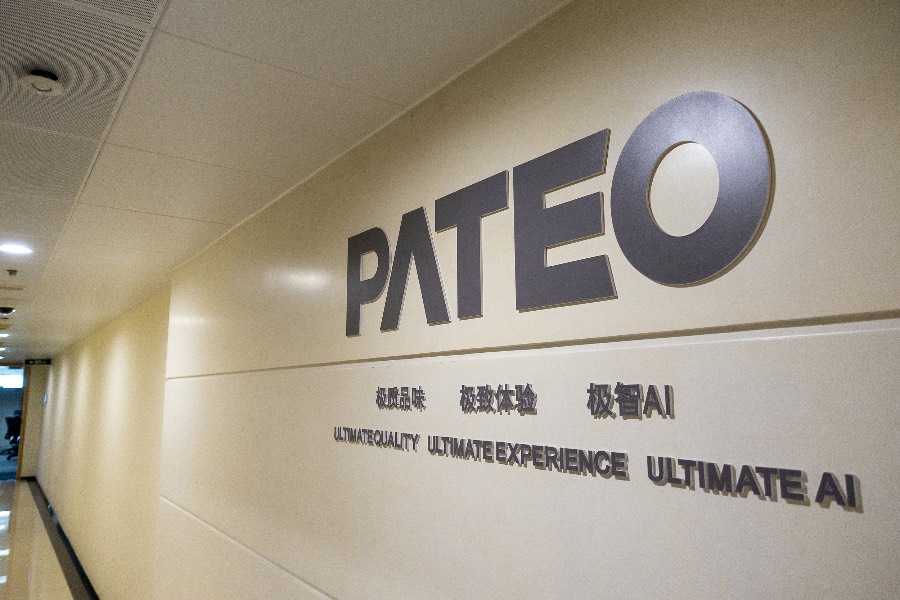Pateo Connect revs up for IPO, belching widening losses and slumping margins

A mounting flow of red ink and external risks could turn off investors to one of China’s leading smart cockpit makers as it drives towards a Hong Kong listing
Key Takeaways:
- Pateo Connect has filed for a Hong Kong IPO, reporting its revenue jumped by 70.9% last year as its net loss widened
- The smart cockpit maker’s gross margin is slipping amid intense competition and its heavy reliance on low-margin domain controllers
By Lee Shih Ta
China’s smart cockpit market is roaring, fueled by a new generation of intelligent cars that are expected to account for 80% of sales this year. At the same time, recent tariffs and other restrictions from the U.S. on Chinese smart cars and related technologies could slow down the industry just as it gains momentum.
Against that backdrop, Chinese smart cockpit maker Pateo Connect Technology (Shanghai) Corp. submitted a new application to list in Hong Kong late last month, hoping its second such attempt would be the charm after a first try last June stalled. Sponsoring the deal are an A-list of Chinese underwriters, including CICC, Guotai Junan International, CMB International, Huatai International and Citic Securities, signaling it’s likely to be quite large.
Founded in 2009, Pateo Connect is one of China’s few domestic providers of both smart cockpits and smart connectivity solutions. Smart cockpits were its main breadwinner last year, contributing 95.5% of total revenue. At the same time, the company continues to provide OEM customers with solutions from its smaller smart connectivity business, which is also quite stable.
Smart cockpits are an essential component in the automotive industry’s smart transformation. Such devices are enabled by a domain controller at their core, with other devices connected to it, including display screen, camera, microphone and other hardware.
Pateo Connect is China’s second-largest provider of smart cockpit domain controller solutions for new energy vehicles (NEVs) in terms of shipment volume in 2024 with 11.9% of the market, behind the leader with 22.8% share. According to third-party data in the listing document, the market for passenger vehicle smart cockpit solutions in China is expected to reach 299.5 billion yuan ($38 billion) in 2029, up from 129 billion yuan in 2024, growing at an annual rate of 18.4% over that time.
Mounting losses
Pateo Connect sold about 4.4 million smart cockpit products over the last three years, providing plenty of fuel for steady revenue growth. According to its filing, the company’s revenue increased from 1.2 billion yuan in 2022 to 1.5 billion yuan in 2023, and accelerated further with 70.9% growth last year to 2.56 billion yuan, averaging 40% annual growth as its customer base expanded.
Despite such strong growth, however, the company has yet to achieve profitability. Its net loss has varied, falling from 452 million yuan in 2022 to 283 million yuan in 2023, only to widen again to 540 million yuan last year. The widening loss in 2024 also reflects cost pressures the company is feeling, especially from heavy R&D and labor spending, which could push back any hopes for a drive into profitability anytime soon.
Compounding its challenges are a gross profit margin that’s moving in reverse, slipping from 15.4% in 2023 to 11.8% last year as costs remain high and competition is fierce. Among its two major segments, the gross margin for its core smart cockpit solutions decreased from 15.1% in 2023 to 11.3% last year, while the much smaller smart connectivity solutions actually grew from 20.8% to 22.1%.
The overall gross margin decline owed to the growing proportion of revenue coming from low-margin domain controllers in the company’s mix. Domain controllers, at the core of smart cockpits, often carry lower margins because the technology is already relatively mature, meaning competition is bigger and prices are more transparent. Software services such as smart connectivity solutions have higher margins, but their declining slice of the revenue pie ultimately eroded the company’s overall gross margin.
Customer concentration
Another concern is Pateo Connect’s heavy reliance on a handful of major customers. Its top five accounted for 83.6% of its revenue in 2022, dropping to 64.6% the next year, only to rebound to 74.4% in 2024. While such strong collaboration with a few customers can bring in steady long-term orders, it also exposes the company to significant risks if two sides fall out or a major customer goes bankrupt.
Another potential vulnerability lies in Pateo Connect’s reliance on U.S. chipmaker Qualcomm’s Snapdragon 8295 chipsets for most of its products. While Qualcomm can still export automotive chips to China, that’s by no means guaranteed indefinitely as Washington keeps adding new products to its list of export controls. Meanwhile, the company is also working with Canada’s BlackBerry to develop smart cockpit solutions using the latter’s operating system. Knowing that investors might frown upon its high reliance on foreigners for such key technologies, Pateo Connect emphasized that it had set up a joint venture with a leading Chinese semiconductor firm to develop domestic automotive-grade chips.
Riding on rapid advances in smart driving technology, Pateo Connect certainly looks well positioned to benefit from the market’s future growth. But its ongoing losses and falling margins may dampen investor enthusiasm for its shares. That said, since the combination of high valuations and low profitability is quite common among this group, investors may prioritize Pateo Connect’s ability to capitalize on opportunities and navigate risks. Anyone considering the stock might closely consider whether Pateo Connect will be able to use funds from its IPO to improve its operating efficiency and commercialization efforts.
To subscribe to Bamboo Works weekly free newsletter, click here




